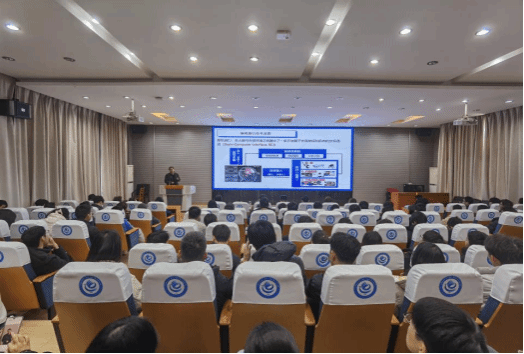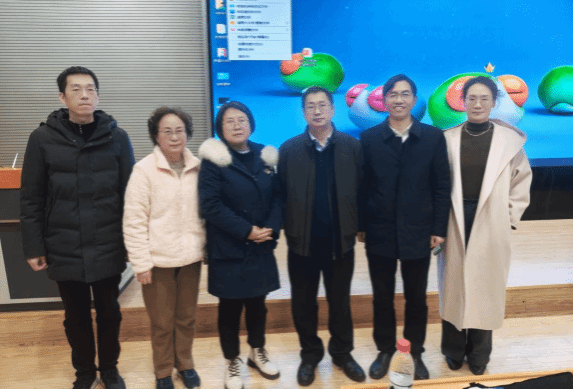(Reported by Yan Jun) On the afternoon of March 6th, a lecture at the Experts Forum of the School of Mechanical Engineering and Electronic Information of China University of Geosciences (Wuhan) was held grandly in the lecture hall of the School. Li Yuanqing, a professor and doctoral supervisor at South China University of Technology, IEEE Fellow and the recipient of the National Science Fund for Distinguished Young Scholars, presented a wonderful report titled “Key Technologies, Applications, and Industrialization of Brain-Computer Interface” to teachers and students. School leaders, including Professor Ning Fulong, dean of the School of Mechanical Engineering and Electronic Information, and Zhang Xiangli, director of the Department of Telecommunications, attended the lecture.

Starting from the basic concepts of brain-computer interface, Prof. Li Yuanqing introduced the development history, key technologies and application prospects of brain-computer interface technology in a clear and concise manner. He pointed out that brain-computer interface technology, as a bridge connecting the human brain and external devices, can realize the integration of brain intelligence and machine intelligence, i.e. hybrid intelligence. Hybrid intelligence is a new form and direction of artificial intelligence with broad application prospects, such as helping high paraplegic patients achieve environmental control, assisting stroke patients with upper limb rehabilitation, and detecting the consciousness status of patients with consciousness disorders.
In the report, Prof. Li Yuanqing highlighted the latest research results achieved by his team in the field of brain-computer interface. They proposed a variety of multimodal brain-computer interaction methods to effectively improve target detection performance and realize multidimensional control. These research results have been successfully applied in the clinic and have brought benefits to many patients. For example, the environmental control system they developed for paraplegic patients with cervical spine injuries can help patients control home appliances, wheelchairs, and other devices through their minds, which greatly improves their quality of life.
Prof. Li Yuanqing also looked forward to the future development trend of brain-computer interface technology. He believes that with the continuous progress of technology, brain-computer interface will play an increasingly important role in the fields of healthcare, education, entertainment, etc., and ultimately realize the human-machine symbiosis, and promote the human society to enter into a completely new era of intelligence.
After the lecture, Prof. Li Yuanqing had a warm interactive exchange with the teachers and students and patiently answered their questions. Dean Ning Fulong expressed gratitude to Prof. Li Yuanqing for his excellent report and pointed out that brain-computer interface technology is an important direction for future technological development. He hoped that the teachers and students of the school can actively pay attention to and devote themselves to research in this field, and contribute to promoting technological progress.
The lecture was informative and in-depth, which not only broadened the academic horizons of teachers and students, but also stimulated their strong interest in brain-computer interface technology, creating a good academic atmosphere for the School. (Edited by Li Jie and reviewed by Qu Xianghua)
